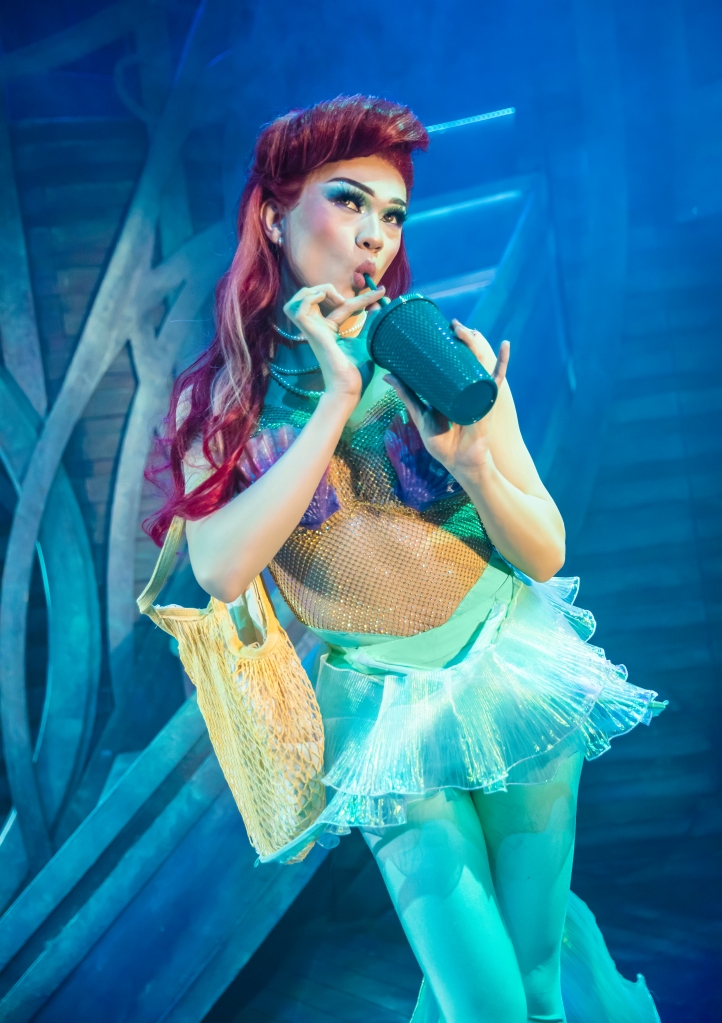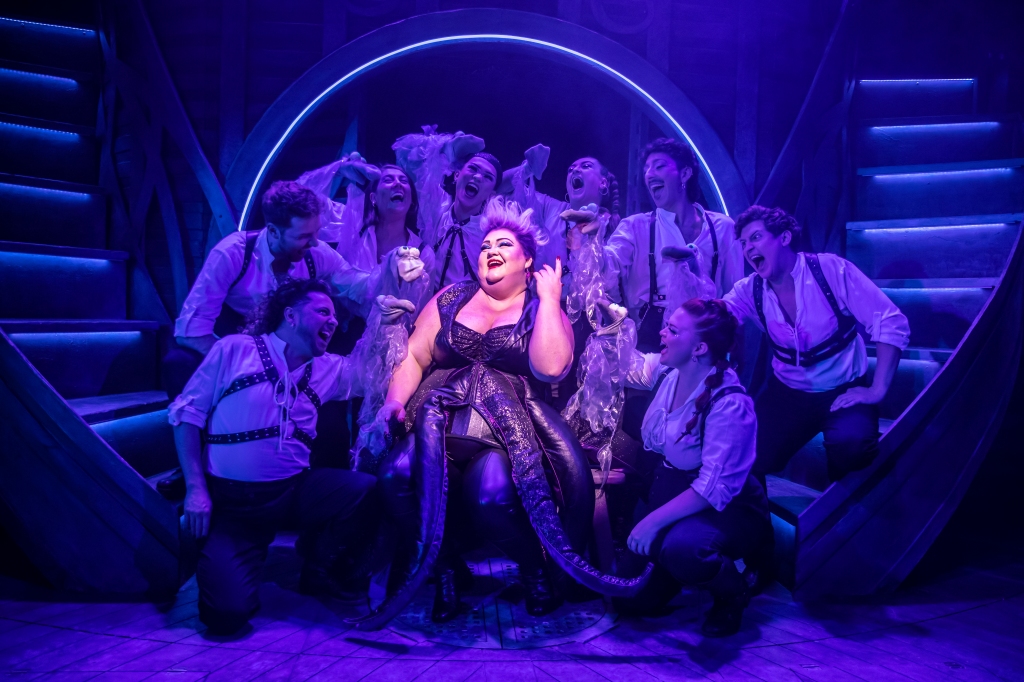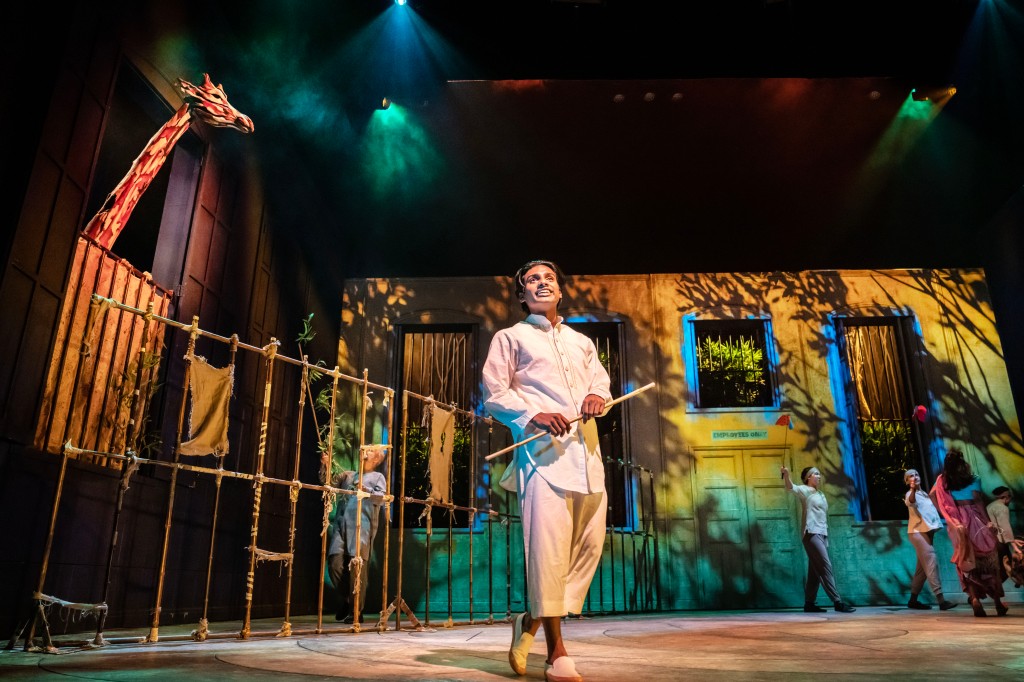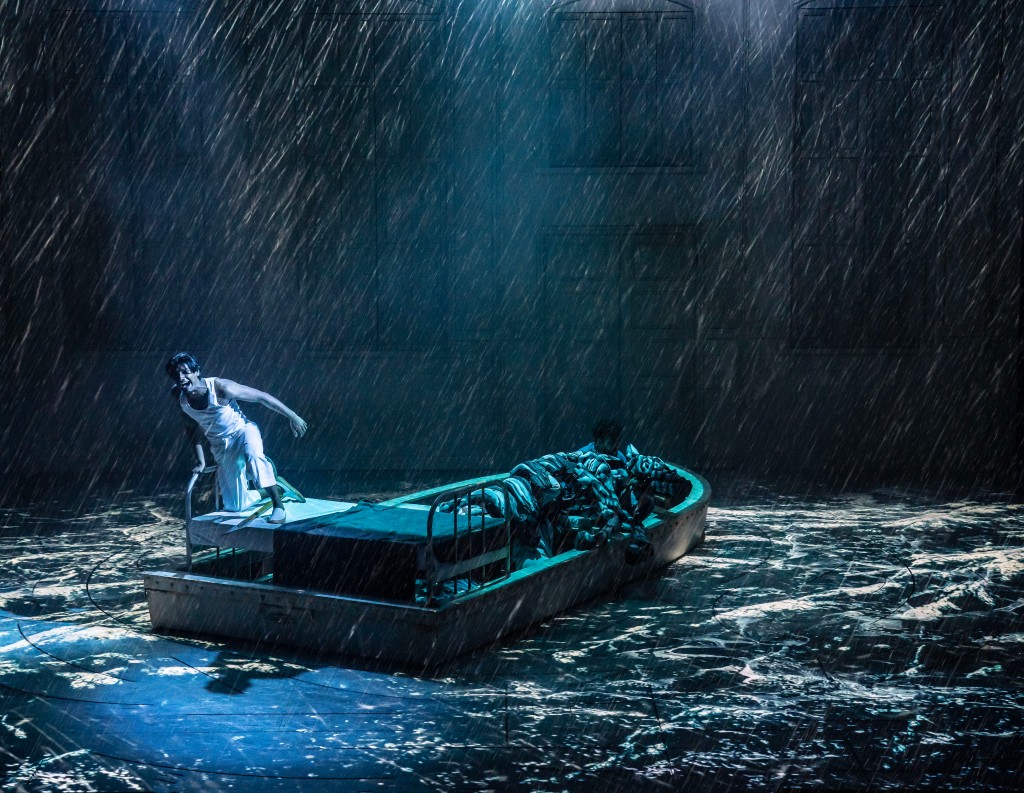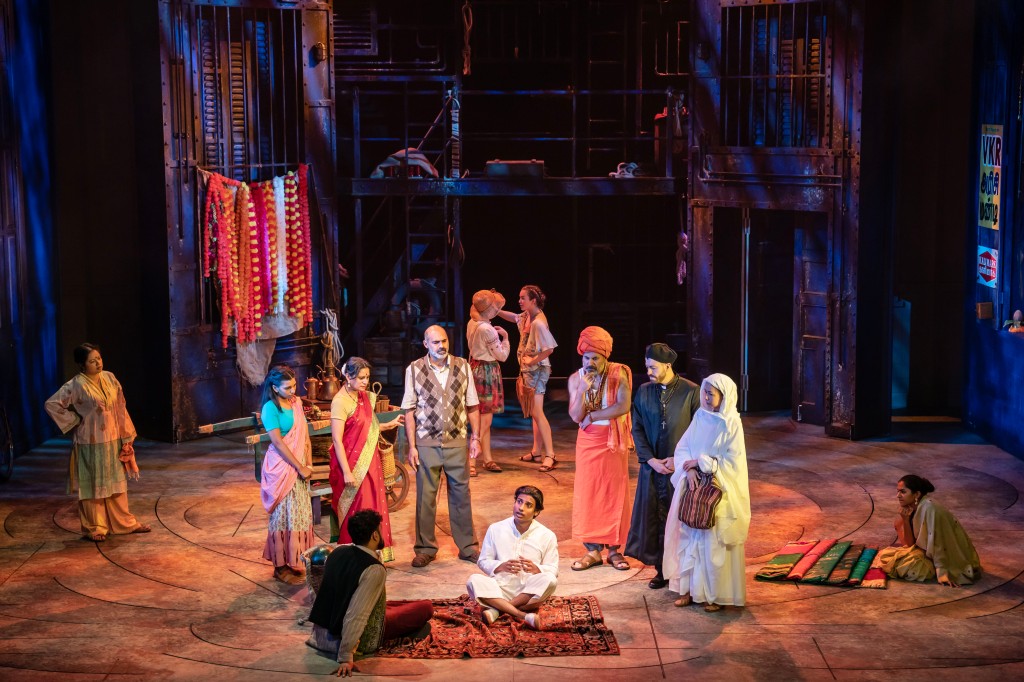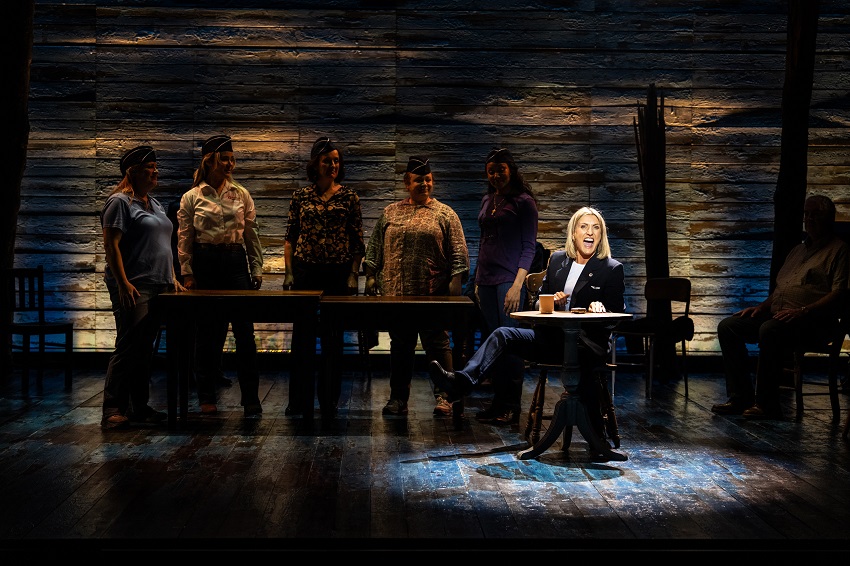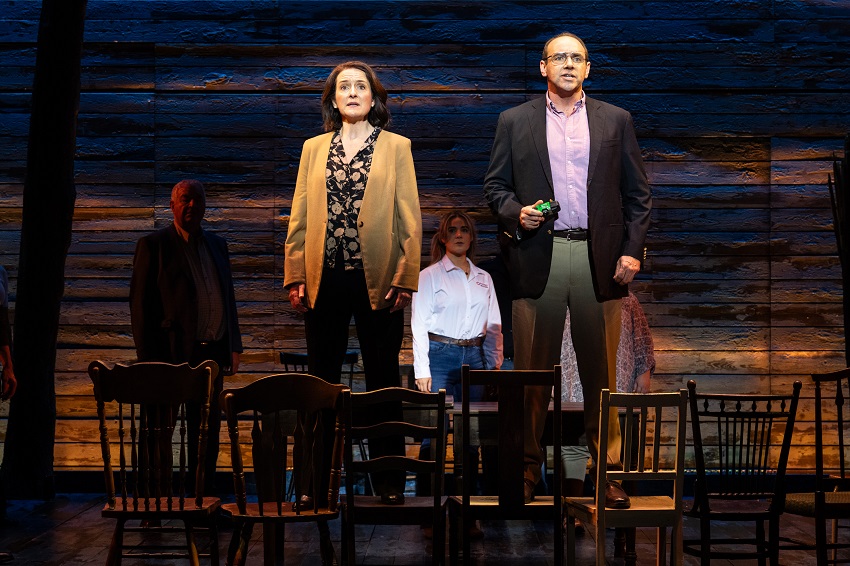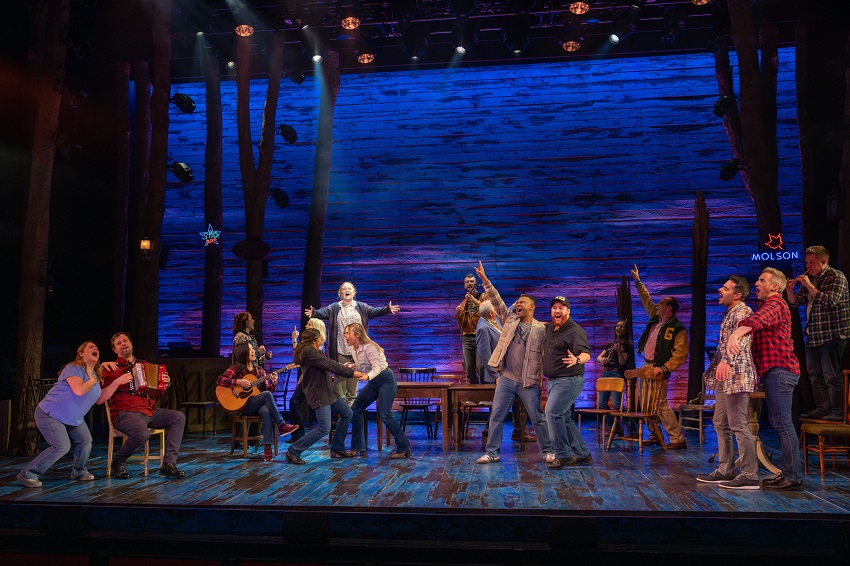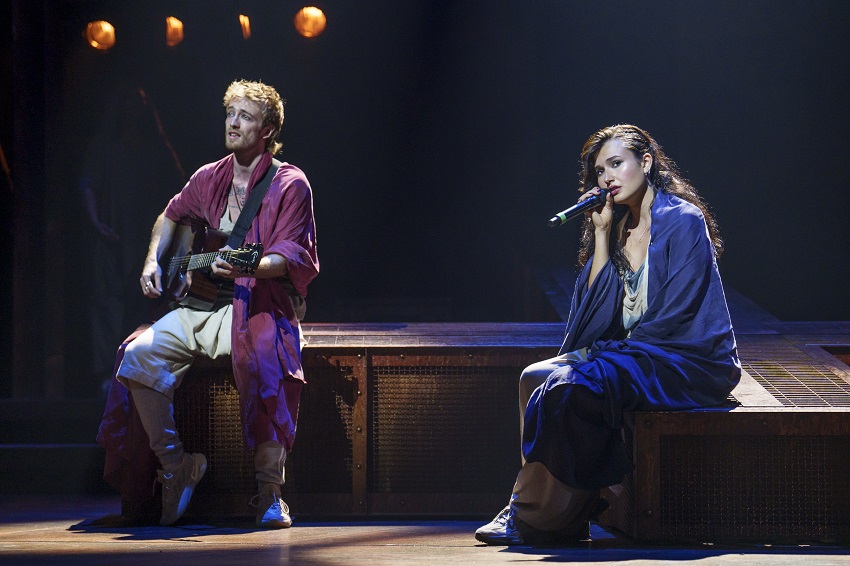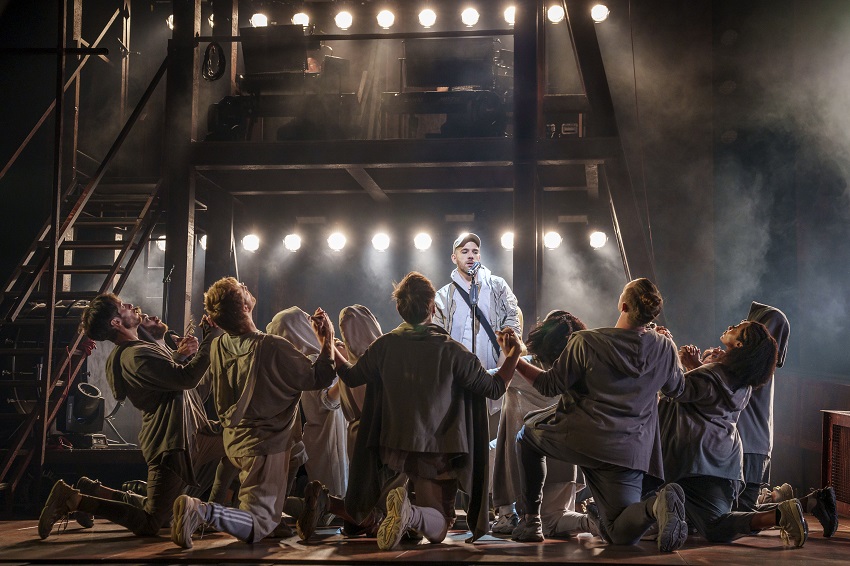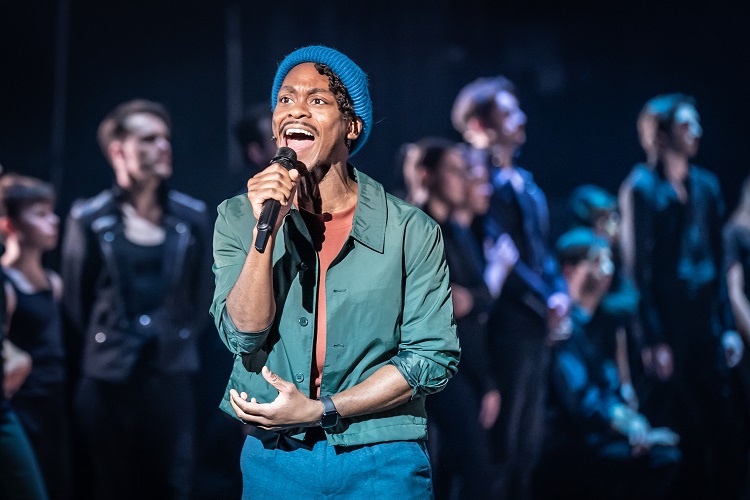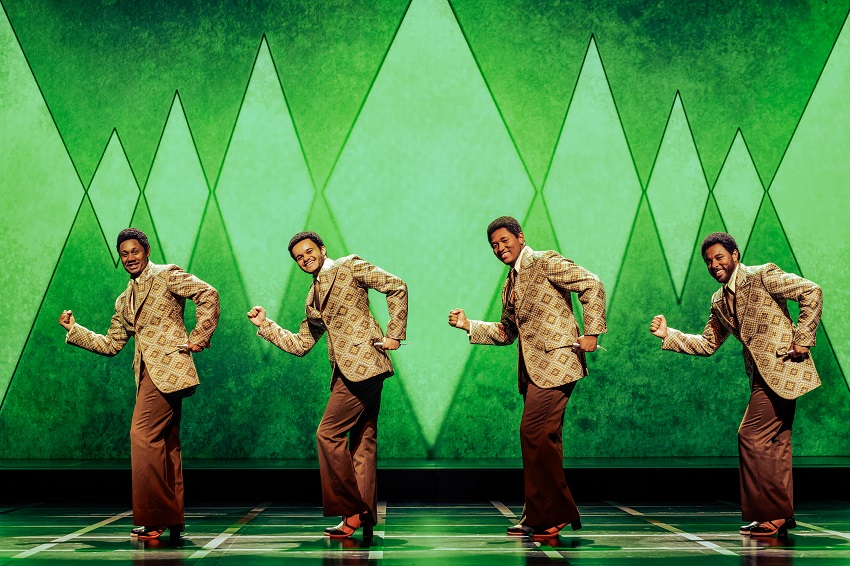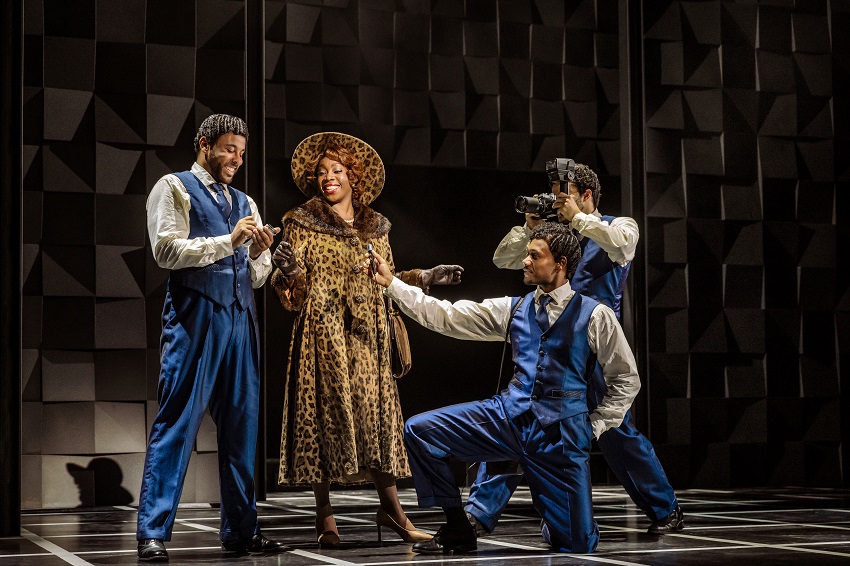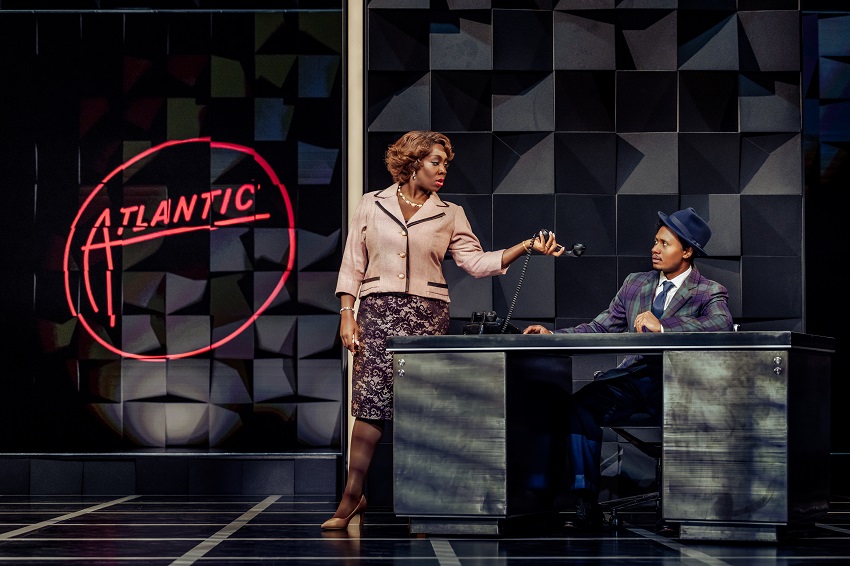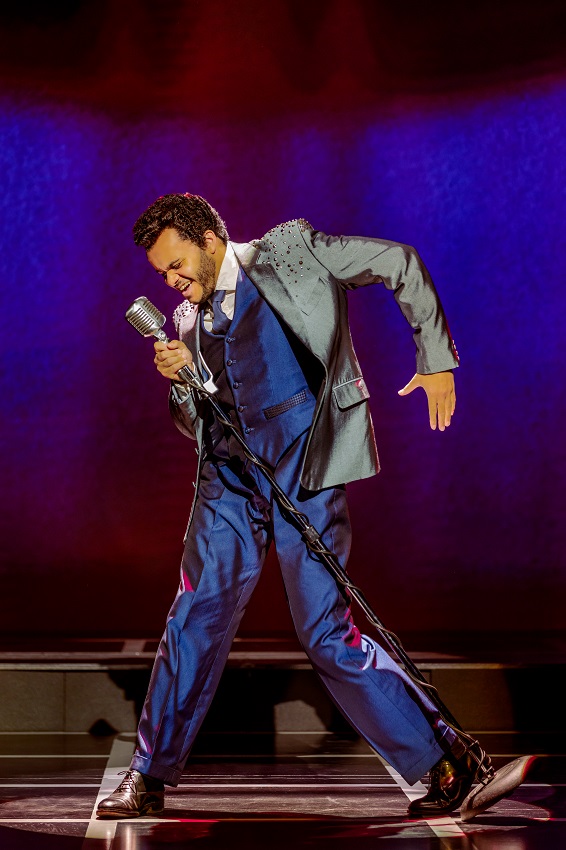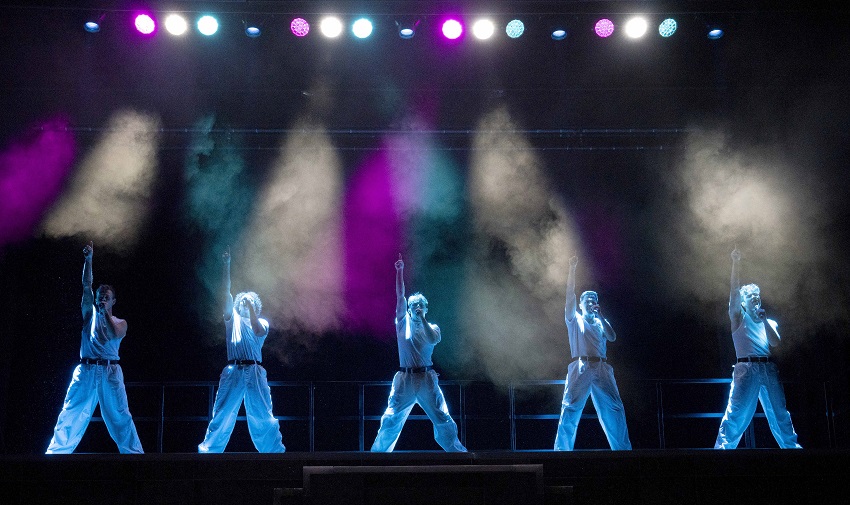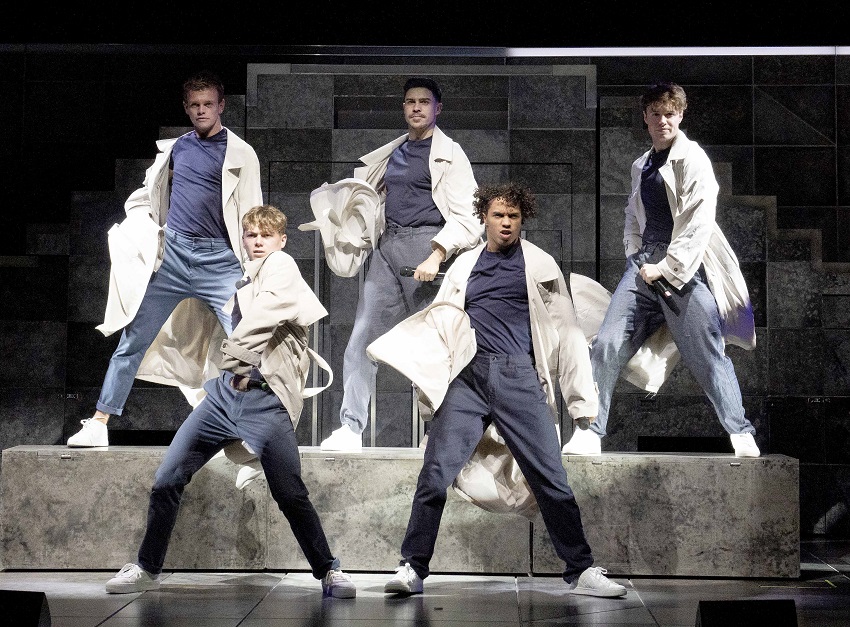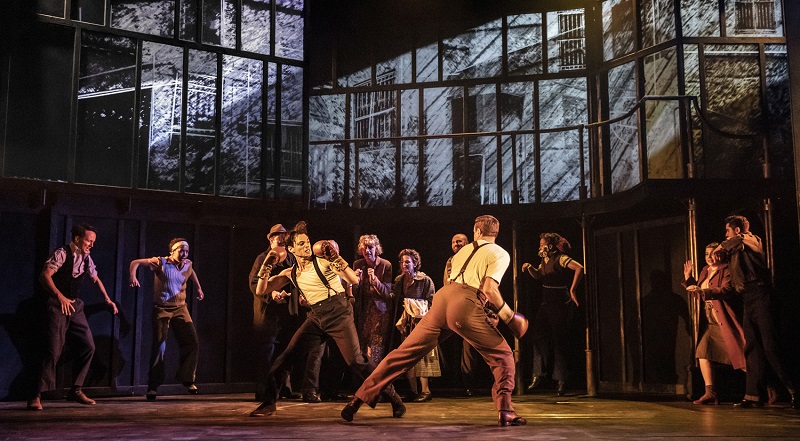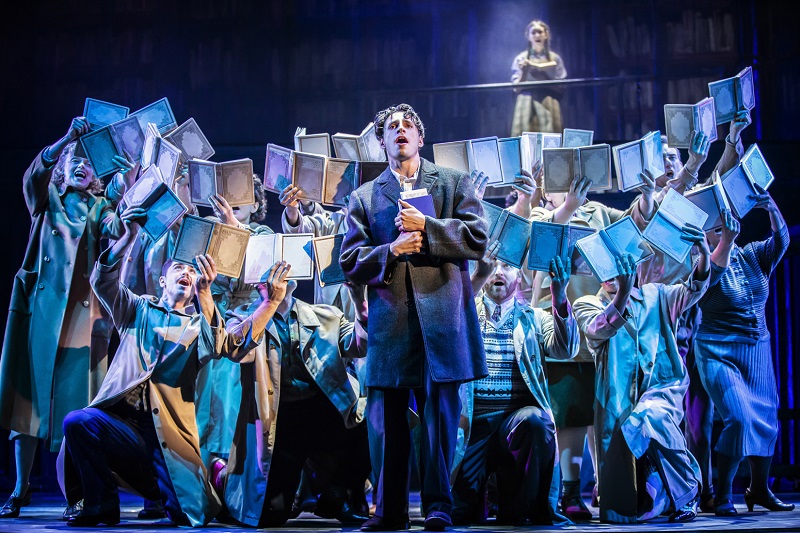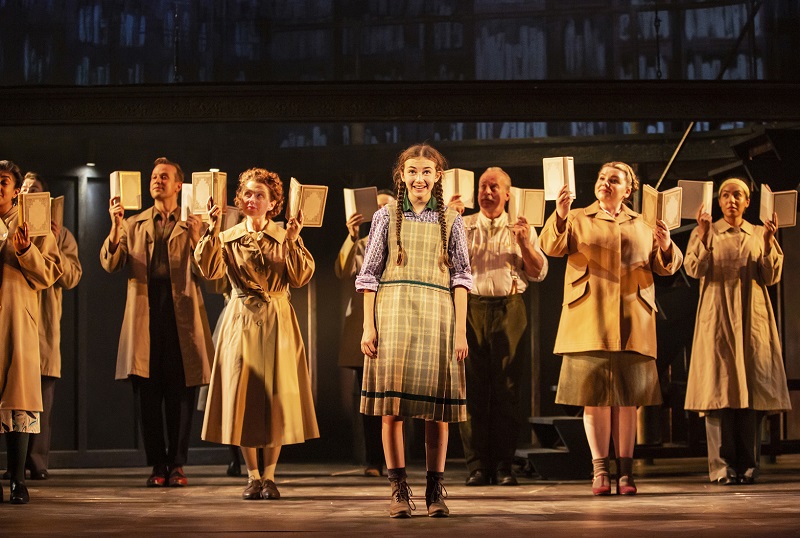This review first appeared in British Theatre Guide.




Bill Kenwright Ltd presents
Blood Brothers
Curve Theatre, Leicester
23–27 April 2024
Willy Russell’s critically acclaimed and much-loved musical Blood Brothers, telling the tragic story of twin brothers, also feels like a tale of two halves, such is the emotional contrast between acts 1 and 2.
After its debut as a school play at Fazakerley Comprehensive School in Liverpool in 1981, Blood Brothers opened at Liverpool Playhouse in 1983, transferred to the West End the same year, won two Olivier Awards and became the third-longest running musical in West End history. It has also enjoyed success on Broadway and embarked on several national and international tours. This latest production has been touring the UK since 2023, plus is studied by students of English literature and drama via the National Curriculum.
Blood Brothers is a study of the haves and have-nots, and of nature versus nurture. Mrs Johnstone (Niki Colwell Evans) is swept off her feet by a flash young man comparing her to Marilyn Monroe (and which features as a recurring song throughout the musical), ends up with a large brood of children with another on the way, an ex-husband and no job, all by the end of the opening number. Bailiffs removing furniture is a regular occurrence.
Mrs Johnstone finds work as housekeeper to wealthy Mrs Lyons (Sarah Jane Buckley), who then, in desperation discovering she is pregnant with twins, agrees to give one of her babies to her employer who is unable to have children of her own. This arrangement is kept secret and sworn on the Bible. Mrs Lyons fears her housekeeper is getting too close to her baby and dismisses her and moves house, but despite efforts to keep them apart, the Johnstone family and Lyons are destined to meet again.
Mickey Johnstone (Sean Jones) and Eddie Lyons (Joe Sleight), now seven (“almost eight”), meet by chance and immediately hit it off. Much of the show’s humour comes from these playful scenes; lovable “scally” Mickey and Eddie, a rather naïve and innocent young boy brought up in a privileged and controlling home. Jones and Sleight work really well together and are utterly convincing as young boys, through to the awkwardness of teenhood and then young men.
Mrs Johnstone and Mrs Lyons don’t want the two boys to fraternise for fear of their secret becoming known, plus the superstition that twins separated at birth should never know they were twins—if they do, they will die. This focus on superstition and fate is reinforced by the brooding and rather sinister omnipresence of the Narrator (Scott Anson) who prowls the stage firing out warnings and rhyming couplets.
Inevitably, there’s a love interest for both boys in their childhood friend Linda (Gemma Brodrick, who also really convinces as a cheeky young girl to despairing wife and young mother). The development of this three-way relationship in act 2, along with Mickey’s redundancy (from Mr Lyons’s factory), his descent into crime, prison and depression is made all the more desperate after his impish antics as a young boy.
Niki Colwell Evans gives a really powerful performance as the much harangued and unlucky Mrs Johnstone, culminating in the heartbreaking “Tell Me It’s Not True”. Sarah Jane Buckley does as well as is possible with Mrs Lyons, not the best written role but her own anguish and despair is painful to see.
Andy Walmsley’s set utilises the back and front of Liverpool’s two-up, two-down Victorian slums to frame the stage with sliding panels denoting multiple contrasting locations including the Lyons’s more comfortable home, a prison, differing schools and Council offices.
Has this show stood the test of time? The answer is yes; although characters are colourful and relatable, they verge on stereotype, but that aside, the themes of poverty and mental health unfortunately make it all too relevant today. The ‘have-nots’ applies not only to wealth, but also to those with or without children, stable relationships or employment.
Blood Brothers is affectionately known as the ‘Standing Ovation Musical’ and this opening performance at Curve was no exception. There is a welcome light, comedic touch with this show, primarily in act 1, and prior to the full-on emotional spiral towards its ultimate and tragic conclusion.
Images by Jack Merriman

